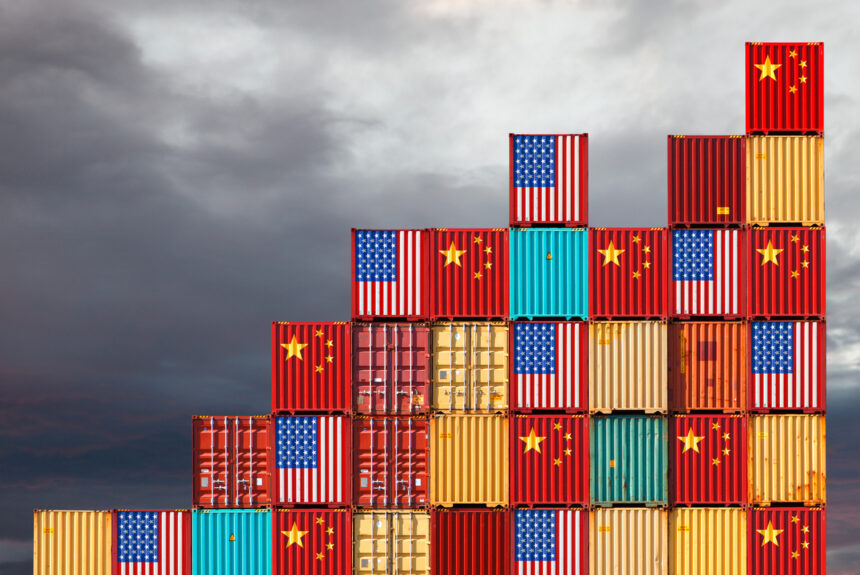As the son of a truck driver, I grew up with my father frequently on the road, but always eager to return to our home in Oklahoma or Texas. My childhood provided firsthand lessons in commerce, opportunity, and distance.
Before the advent of free trade humans lived for centuries and even millennia with little economic growth. Consider the graph below, which shows global GDP almost unchanged from the year 1 AD until the year 1800. Trade among people and nations helped make that line go straight up over these last two centuries, following a path written about by Adam Smith and envisioned by the American Founding Fathers.
The way to promote more growth is more trade. But the right kind of trade: Voluntary exchange that makes both parties better off. Free trade. That’s the sort of trade my father engaged in as he drove his truck and the sort of trade that has made billions of people better off.
>>>READ: A Green Trade War Isn’t Good for Consumers or the Planet
However, it must be said that not all trade is free trade. There is also unfair trade, which can be used to punish hard-working people and benefit government-favored industries. A few people or companies get rich while most people struggle.
These days, China is the poster child for unfair trade practices. For decades, Beijing used access to cheap labor to encourage companies to manufacture in China. It stole intellectual property. It refused to allow its currency to float. None of that is free or fair, and the World Trade Organization was supposed to prevent it.
Now China wants to run the same playbook to try to dominate the “green energy” market. That’s enough to frighten some observers. “Economists may celebrate the efficiency of free trade, but such an option may not exist in reality if our politics cannot abide taxpayer subsidies causing Chinese electric vehicles to flood the U.S. market while auto workers in key electoral states like Michigan lose their jobs,” writes Jason Bordoff. “The best climate policy is often not the ideal, but the one that can muster enough support to become law.”
>>>READ: The Hidden Costs of Green Protectionism
Yet protectionist policies aimed at countering China would only result in fewer choices and higher prices for consumers. Protectionism would also close off many overseas markets and stifle innovation by U.S. businesses.
To be clear, we should absolutely hold China accountable for its counter-competitive trade practices. What we need is a balanced, common sense, carrot-and-stick approach. The U.S. must:
- Strengthen our trading relationships with our allies. The more partners we have, the stronger we will be.
- Expand the number of countries that support economic freedom, democracy, private property rights, environmental stewardship and the rule of law.
- Diversify supply chains. If fewer raw materials come from China, our allies will have more opportunities to develop products.
- Ramp up the pressure on the World Trade Organization to pull its head out of the sand and start holding China accountable when it cheats on trade agreements.
Beijing is formidable. “China currently controls over 80 percent of certain segments of the EV battery supply chain, particularly upstream nodes such as critical minerals mining, processing, and refining,” the White House wrote this year. “Concentration of critical minerals mining and refining capacity in China leaves our supply chains vulnerable and our national security and clean energy goals at risk.”
Those are threats, but also opportunities. The U.S. and our allies can do more deals with each other at each stage of the process to counter China’s advantage.
Working with our allies is the best way to beat China and build a better, cleaner future.
The views and opinions expressed are those of the author’s and do not necessarily reflect the official policy or position of C3.
